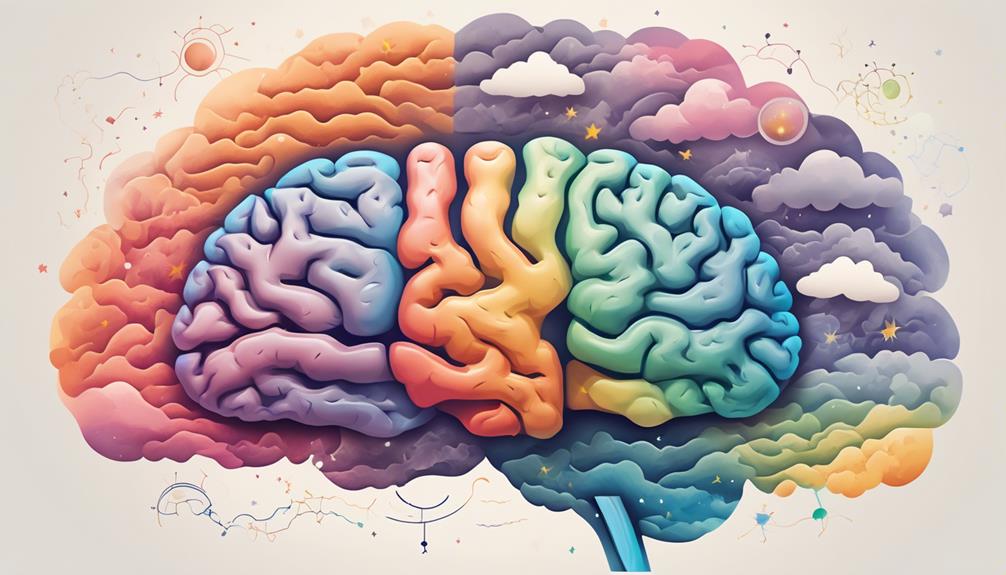Every night, we embark on a mysterious journey, drifting into a realm where reality blurs and the impossible becomes possible. Sleep is a universal experience, yet it remains one of the most enigmatic aspects of human life. What really happens when we close our eyes and surrender to slumber? Let’s dive into the fascinating world of sleep and unravel the secrets of this nightly adventure.
The Stages of Sleep: A Dance of Brainwaves
Sleep isn’t a uniform state; it’s a complex dance of brainwaves that takes us through various stages, each with its own unique characteristics and functions.
Stage 1: The Drowsy Drift
This is the lightest stage of sleep, where we transition from wakefulness to sleep. It’s that dreamy state when you’re half-awake, half-asleep, and easily stirred by external sounds.
Stage 2: The Steady Slumber
In Stage 2, our body temperature drops, and our heart rate begins to slow. This stage accounts for the majority of our sleep cycle and is crucial for physical restoration.
Stages 3 and 4: The Deep Sleep Dive
These stages, often referred to as slow-wave sleep (SWS), are when our bodies engage in serious repair work. Growth hormone is released, tissues are repaired, and our immune system gets a boost.
REM Sleep: The Dream Weaver
REM (Rapid Eye Movement) sleep is the stage where dreams occur. Our brain activity during REM sleep is similar to when we’re awake, and our eyes move rapidly behind closed lids. This stage is vital for cognitive functions like memory consolidation and emotional regulation.
The Science Behind Dreams: A Window into Our Minds
Dreams have fascinated humans for millennia, inspiring art, literature, and scientific inquiry. But what are dreams, and why do we have them?
Theories of Dreaming
- Psychoanalytic Theory: Sigmund Freud proposed that dreams are a window into our unconscious mind, revealing hidden desires and repressed emotions.
- Activation-Synthesis Theory: This theory suggests that dreams are the brain’s attempt to make sense of random neural activity during REM sleep.
- Memory Consolidation Theory: Dreams may play a role in processing and consolidating memories, helping us learn and adapt.
Common Dream Themes
Ever had a dream where you’re falling, flying, or showing up to an important event unprepared? These common dream themes often reflect our anxieties, aspirations, and daily experiences.
The Importance of Sleep: More Than Just Rest
Sleep isn’t just a time for rest; it’s a critical component of our overall health and well-being. Here’s why getting enough shut-eye is so important.
Physical Health
- Immune Function: Sleep helps maintain a robust immune system, making us less susceptible to illnesses.
- Metabolism and Weight: Lack of sleep can disrupt hormones that regulate hunger, potentially leading to weight gain.
- Heart Health: Adequate sleep is linked to a lower risk of heart disease and stroke.
Mental Health
- Mood Regulation: Sleep deprivation can lead to irritability, mood swings, and even depression.
- Cognitive Function: A good night’s sleep enhances learning, problem-solving, and decision-making skills.
Performance and Safety
- Work and School: Well-rested individuals perform better at work and school, with improved concentration and productivity.
- Safety: Sleep-deprived individuals are more prone to accidents, both on the road and in daily activities.
Tips for Better Sleep: Mastering the Art of Slumber
Struggling to get a good night’s sleep? Here are some tips to help you master the art of slumber and wake up feeling refreshed and rejuvenated.
Establish a Sleep Routine
Go to bed and wake up at the same time every day, even on weekends. This helps regulate your body’s internal clock.
Create a Sleep-Friendly Environment
Make your bedroom a sanctuary for sleep. Keep it cool, dark, and quiet, and invest in a comfortable mattress and pillows.
Limit Screen Time
Reduce exposure to screens at least an hour before bedtime. The blue light emitted by phones, tablets, and computers can interfere with your body’s production of melatonin, a hormone that regulates sleep.
Watch Your Diet
Avoid heavy meals, caffeine, and alcohol before bedtime. These can disrupt your sleep cycle and make it harder to fall asleep.
Relax and Unwind
Develop a relaxing bedtime routine to signal to your body that it’s time to wind down. This could include activities like reading, taking a warm bath, or practicing mindfulness meditation.
Conclusion: Embracing the Mystery of Sleep
Sleep is a fascinating and essential part of our lives, a nightly adventure that allows our bodies and minds to heal, grow, and recharge. By understanding the stages of sleep, the science of dreams, and the importance of quality rest, we can better appreciate this enigmatic experience. So tonight, as you lay your head on the pillow, embrace the mystery of sleep and look forward to the wonders that await you in the realm of dreams. Sweet dreams!




